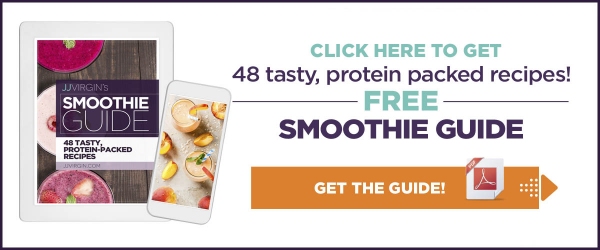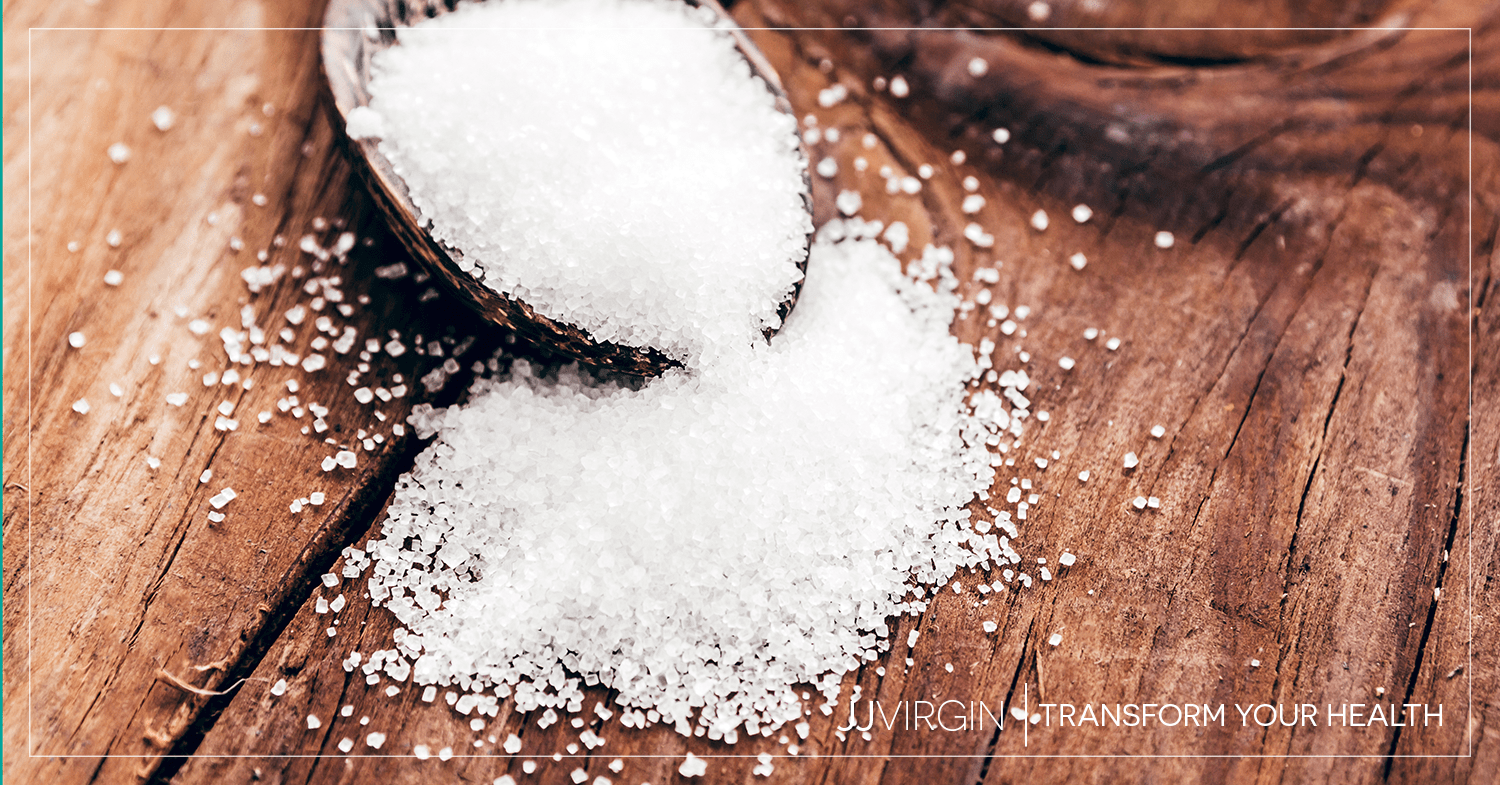When you have a New York Times bestseller called Sugar Impact Diet, you get a lot of questions about the sweet stuff! And the one I get asked most often is, “Which sweeteners can I use?”
While artificial sweeteners are most definitely out, there are natural sweetener options that won’t harm your health or expand your waistline.
How to Choose Healthy Sweeteners
However, don’t fall for the trap that all-natural equals healthy. Alternatives like maple syrup or agave are still sugars, and the end result in your body is the same: cravings, inflammation, and excess body fat!
The solution to avoiding those dangerous consequences is to choose smart sweeteners. Although no sweetener is perfect, the ones below come the closest.
I don’t have a huge sweet tooth, but I want to know that whether I’m having a smoothie for breakfast or the occasional Paleo Pumpkin Brownie, the sweeteners I choose won’t have a negative impact on my health!
Here’s a closer look at my top sweetener choices…
Monk fruit
Also known as “luo han guo,” Chinese monk fruit has an extract that’s naturally sweet but doesn’t impact your blood sugar levels.
And that’s not all that’s good about luo han guo! Recent studies also show that special antioxidants in monk fruit extract offer anti-inflammatory benefits and can help prevent cancer and type 2 diabetes.1,2
But as with any sweetener, it’s important to be cautious about overusing monk fruit. That’s because it can cause something called “caloric dysregulation.” Caloric dysregulation is a really scientific term for a process that’s actually easy to understand.
Usually sweet foods = calories, so your brain knows to limit them. But if you repeatedly eat something that tastes extremely sweet – in monk fruit’s case, we’re talking up to 300 times sweeter than table sugar – it can break your sensor.
Suddenly, your brain thinks it’s perfectly acceptable to gorge on super-sweet foods, and you can imagine why that’s a problem!
Another thing to keep in mind is that monk fruit is also commonly paired with other sweeteners. A combination of monk fruit with sweeteners like erythritol or stevia is fine, but be sure to steer clear of dextrose or maltodextrin. They’re both made from corn and that can bring on a whole new set of problems for those with food sensitivities or chronic inflammation.
Stevia
Stevia is another one of my favorite sweetener choices because a small amount can achieve a sweet taste without affecting your blood sugar. In fact, studies have shown that stevia can enhance glucose tolerance and improve metabolic syndrome, which makes it ideal for people with insulin resistance and diabetes.3,4
But that doesn’t mean more is better! Stevia can also cause caloric dysregulation, so be sure to only consume it in small amounts as part of a low-sugar impact diet.
Another common complaint about stevia is that it has a bitter aftertaste on its own – I certainly think that’s the case. which is why you’ll often find it mixed with other sweeteners or sugar alcohols.
Sugar Alcohols
Sugar alcohols got their name because their biochemical structure resembles a hybrid of a sugar and alcohol. Derived from plant sources, the most common sugar alcohols are erythritol, xylitol, and mannitol.
One of the reasons I like sugar alcohols is because they have some calories, meaning they won’t trigger caloric dysregulation. And since sugar alcohols can’t be fully digested by your body, they have little impact on your blood glucose.
But the drawback to not being completely broken down is that sugar alcohols can cause digestive discomfort in some people. That’s why it’s crucial to be your own best health detective – only you can figure out which sweeteners work best for your body.
And if you’ve ever heard rumors that sugar alcohols like xylitol and erythritol can cause cancer, rest assured that there’s no clinical research to back up that claim. In fact, there’s actually evidence that the opposite is true. (Find out more here…)
Worth mentioning: sugar alcohols like erythritol and birch-derived xylitol are safe for those on the Virgin Diet. Erythritol is fermented from corn, but since it doesn’t contain the corn proteins, it’s not an issue for those avoiding grains or eating a corn-free diet because of food intolerances.
However, if you have a true corn allergy (rather than a corn sensitivity), you should not consume corn-derived erythritol or xylitol without first consulting your healthcare provider.
Allulose
Plant-based allulose may be the new kid on the block, but it’s taking the sweetener world by storm!
Classified as a “rare sugar” because it’s naturally present in only a few foods, allulose shows promise for some impressive health benefits. Early research shows that it can help regulate blood sugar and decrease the risk of type 2 diabetes, plus boost weight loss and reduce the risk of fatty liver disease.6-9
It’s important to keep in mind that there needs to be more long-term studies conducted to verify all those advantages. That said, allulose has great potential as a healthy sweetener.
Glycine
Glycine is an amino acid (the building block of protein) that’s an optimal sweetener to help stabilize blood sugar levels for people with insulin resistance and diabetes. In fact, research shows that glycine can even help reduce inflammation and improve immune function in diabetic subjects!5
One final tip: the key to using sweeteners wisely is to only consume them in moderation as part of a low-sugar impact diet – the ultimate goal is to eliminate sugar cravings and retrain your tastebuds to appreciate the natural flavors of food!
If you struggle with cravings for sweet foods and carbs, you may be a sugar burner. Check out this blog post to take a quick quiz and find out…
Have questions? Follow me on Facebook or Instagram and let me know how my team and I can best support you!

Article Sources
1 https://www.ncbi.nlm.nih.gov/pubmed/21631112
2 https://www.ncbi.nlm.nih.gov/pubmed/16835866
3 https://www.ncbi.nlm.nih.gov/pubmed/14681850
4 https://www.ncbi.nlm.nih.gov/pubmed/28792778
5 https://www.ncbi.nlm.nih.gov/pubmed/18852529
6 https://www.ncbi.nlm.nih.gov/pubmed/20208358
7 https://www.ncbi.nlm.nih.gov/pubmed/28209058
8 https://www.ncbi.nlm.nih.gov/pubmed/22339545
9 https://www.ncbi.nlm.nih.gov/pubmed/25754616






